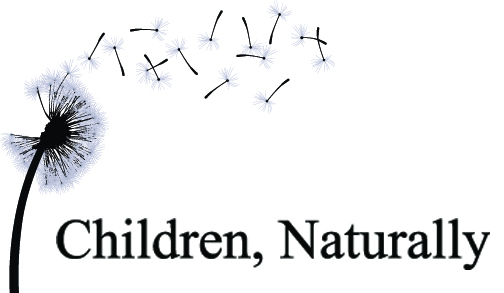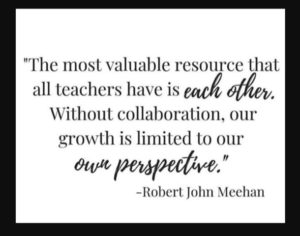I always smile (and brace myself a little) when I get a message that starts out, “Please don’t take offence….” I received this from a past college student and now a respected peer. She wanted to know what my favourite decade in the child care field has been. This implies I have seen a few, and as much as I’d like to think I’m not that old I suppose I am and have seen a few decades go by.
I wasn’t really sure what she was looking for so I shared the changes with her that I have seen over the past 30 plus years. This included my personal perspective and growth from being a greenhorn and with really no concrete ideas of my own though my journey to developing and sharing my own strong philosophy. I covered politics and how they have progressed – or not progressed. (Who else remembers the day we had an organized ‘strike’ in the early 90’s? I had a sweatshirt that read Caught in Charlottes Web in reference to Charlotte Oleson, PC MLA at the time – my big political contribution in those days.) We then went on to discuss mentors and who were mine and how I found my purpose when I was lost. I covered a variety of topics but not in a deep way.
Did this answer her question? Not really.. she then wanted to know which decade I felt the child care field had seen the most improvement. She was really trying to search for some hard answers. I feel each decade had its own challenges and strides forward or backward. I felt for me it is hard to compare them equally as my understanding of both the political side and the professional (actual hands on) side of child care has changed for me as I’ve gotten to know others, read more, networked more, and grow in my knowledge and confidence. We then dissected the ideas and dug a bit deeper…
Advocacy
We talked about how much more advocacy is happening right now. Who knew it was going to be a pandemic that got things really rolling! Our field is standing up like never before and the conversations are revolving around how essential we are to making it possible for essential healthcare workers to go to work and to providing care getting the economy back open. There are also more conversations about quality and what that actually is. I do feel there are a lot more people having a lot more conversations about child care and the importance of the early years and the understanding of brain development now than ever before.
Parents
We also reflected on parents and their challenges with child care. There has always been such a shortage of child care spaces that parents have generally been forced into the situation of having little to no choice about the program they place their child in. They need to go to work and if only one program has a space, they often have to take it wether they like the philosophy and practices of that program or not. I have always strongly believed parents need a choice and in our current situation, there is very little of that.
The next question we tacked was regarding the understanding of parents and quality. Do parents understand what to look for in regards to quality and developmentally appropriate practice (DAP) in a child care program? I think parents are hoping we know what is DAP and are trying to trust us as the professionals. My concern is there is a lot of non-DAP practice happening and that worries me. There is so much research that shows us children need to play to learn, not worksheets, not rote leaning and not sitting still but yet, there it is in so many programs that have these practices all in the name of getting them “ready”. Ready for what?? Kindergarten? University? We need to be focusing on TODAY! Not tomorrow. We need to be working hard at building the base of physical skills (eg. large muscle skills like running jumping, hopping/small muscle skills like using play-doh, markers and crayons, picking up small items), cognitive skills including language and literature (eg. thinking skills, problem-solving, holding a conversations, expressing ideas, becoming familiar with print materials), emotional skills (eg. identifying feelings, self-regulation), social skills (ex. getting along with others, conflict resolution) so when they head off to kindergarten, the kindergarten teacher can then do what she/he needs to do because we as ECE’s have built a strong foundation. Families have been bombarded by media, other parents, and others they see as an authority that their preschool child needs to be ‘hurrying up and getting ready or else they will fall behind’. Parents are feeling more and more unnecessary pressure when they need to just sit back and relax. (more on that another time)
ECE training and the need for strong mentors
ECE training was the next topic we delved into. Question: do instructors give a clear message as to what quality looks like in a program and how do instructors empower students to be able to advocate as a new ECE in the field against “this is the way it has always been done” mentality? This is a tough one! I sometimes get pushback that what we are teaching is not ‘real world’. How do we overcome that? This is a question I have been reflecting on for a long time… and continue to do so…
We as instructors can give the students heading out into the field lots of tools but the student/new ECE needs to be strong enough to stand up to the old guard and possibly lose their job (or giving up and move on) for fighting for what they believe is right.
I also strongly believe ECE’s need mentors. Two years of college is just the beginning of learning. They don’t leave knowing it all. There is a belief by some that once college is done, you’re ready for it all. No! You are ready to venture out and begin! Now find a mentor, search out some quality professional development opportunities, network with others… in reality we are never done!
We finished up by talking about tired directors and coordinators that have had to focus on check lists rather than having the time to help staff and programs focus on improving quality and supporting them. There is just never enough time in a day to do it all and somethings just don’t get the attention they need.
Wrapping it up
We covered a lot of topics over our conversation and I am still not sure I answered her original question. I always enjoy our discussions and she always like to push my thinking and makes me reflect on many topics. When we allow ourselves to be challenged and get into some deep conversations I think we grow in our own learning and understanding so much more.
Thanks Lisa, I look forward to our next one!

